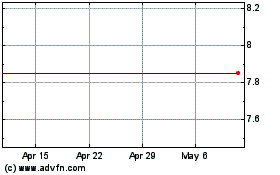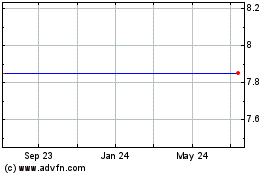A Sale Of Citigroup's Subprime Arm Likely Not Imminent
August 13 2010 - 10:54AM
Dow Jones News
Despite a revival of interest in consumer lenders, the time
likely isn't ripe yet for Citigroup Inc. (C) to sell CitiFinancial,
its subprime lending arm.
Two deals for big consumer finance companies in the last four
weeks signal renewed interest in subprime lending, a business
considered toxic only a short while ago. Consumer delinquencies are
improving, and yields on consumer loan are attractive at a time
when investors find attractive returns rare.
American International Group Inc. (AIG) said Wednesday it will
sell 80% of its American General Finance Inc. unit to Fortress
Investment Group LLC (FIG), and General Motors Co. said in late
July it will buy subprime auto lender AmeriCredit Corp. (ACF). The
two deals are driven by very different dynamics, but along with the
purchase of Financial Federal Corp. by regional bank People's
United Financial Inc. (PBCT) earlier this year, they might suggest
a deal for CitiFinancial is near.
Yet several factors point to a deliberate sales process rather
than a quick follow to recent deals.
Citigroup decided last year that it will divest CitiFinancial,
along with other businesses, loans, and securities that don't fit
with its more narrowly focused post-crisis strategy. Citigroup is
refitting the unit to make it more attractive to buyers, a task
that will take time. In June, Citigroup said it plans to separate
the loans, branches and staff that are basis for future growth from
the loans that are unattractive to a potential buyer. The unit is
closing 320 branches and is cutting up to 600 staff.
Funding consumer loans, though less tricky than during the thick
of the financial meltdown, remains a challenge. Citigroup can fund
CitiFinancial with deposits. But consumer lenders generally depend
on selling or securitizing loans to make new ones--a market that
collapsed during the financial crisis. The more liquid the
secondary loan market becomes, the better the price CitiFinancial
will fetch.
Another reason to wait: fallout from the Dodd-Frank Act, the
financial-overhaul legislation passed this summer. Customers
rejected by banks for being unprofitable or risky under the weight
of new regulations could migrate to consumer lenders, who have more
experience underwriting and pricing subprime risks.
On a conference call last month, responding to a question about
the viability of CitiFinancial, Citigroup Chief Executive Vikram
Pandit said, "My God, you don't want to shut this down."
He explained, "We're one of the last ones standing to serve an
entire clientele that really doesn't have access to those products
and services."
He's not alone in that thinking. Fortress thinks the return on
its American General loans outweighs the risks, but it also expects
the number of people falling under the subprime umbrella to grow,
according to a person familiar with the firm's thinking. That bodes
well when banks are exiting the market.
And yet the American General deal looks a lot like a distressed
asset sale. American General lost $347 million last year and $1.4
billion in 2008. For the first six months this year, it earned $49
million, most of it in the second quarter, and $4.3 billion of its
$17.3 billion in long-term debt on June 30 is maturing over the
next 18 months. Fortress bought the American General stake for less
than $200 million, according to a person familiar with the matter,
less than 8% of the $2.4 billion value AIG recently put on the
business.
Citigroup won't strike a deal like that for CitiFinancial.
In June, CitiFinancial CEO Mary McDowell told Dow Jones
Newswires, "We've had a lot of interest" from potential investors.
She wouldn't elaborate, but said, "Potential buyers want to see a
business that is growing."
That may yet take some time.
-By Matthias Rieker, Dow Jones Newswires; 212-416-2471;
matthias.rieker@dowjones.com
(Eric Holm contributed to this article.)
Simplify Exchang (NYSE:FIG)
Historical Stock Chart
From Mar 2024 to Apr 2024

Simplify Exchang (NYSE:FIG)
Historical Stock Chart
From Apr 2023 to Apr 2024
